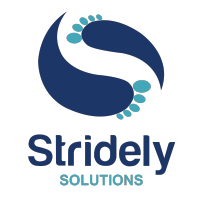Salesforce Sales Cloud is one of the most powerful tools out there for managing the entire sales journey. From capturing leads to closing deals and everything in between, it brings all your sales activities into one clean, connected space.
Designed to help teams boost productivity and drive revenue, Sales Cloud offers smart features like automated workflows, forecasting tools, pipeline tracking, and even AI-driven insights that guide your next move.
It’s a core part of the Salesforce ecosystem and is trusted by businesses of all sizes to speed up sales cycles, strengthen customer relationships, and bring everything together in one place.
In this blog, we’ll walk you through its key features, benefits, and how to go about Salesforce Sales Cloud implementation guide the right way.
Salesforce Sales Cloud Features
Core Sales Execution
Lead Management
Automate lead capture, scoring, and assignment to the right sales reps. Smart routing helps teams focus on quality leads, respond faster, and improve conversion rates.
Opportunity Management
Track deals through every stage with features like custom sales paths, win probability scores, and pipeline forecasts. It helps sales leaders monitor progress and spot deals at risk.
Account and Contact Management
Keep all customer interactions in one place. Salesforce Sales Cloud connects accounts and contacts to give a full view of each customer, making conversations more informed and meaningful.
Activity Tracking
Log emails, calls, and meetings automatically. It reduces manual effort and ensures everyone stays updated with the latest engagement history.
Salesforce Mobile App
Sales reps can update records, log activities, and manage tasks from anywhere. The app supports on-the-go productivity for field teams.
Sales Productivity and Efficiency
Sales Engagement
Automate outreach sequences that include emails, calls, and follow-ups. Reps can stay consistent and increase their chances of connecting with prospects.
Salesforce Inbox
Connect Salesforce with Gmail or Outlook. Users can log emails, set meetings, and see CRM insights directly from their inbox.
Einstein Activity Capture
Sync emails and calendar events with Salesforce. Keep CRM data accurate and updated with less manual work.
Slack Integration
Get Salesforce alerts, share records, and collaborate on deals within Slack. It helps teams respond quickly and stay connected.
Sales Dialer
Make calls, drop voicemails, and log conversations directly from Salesforce. Reps spend less time switching tools and more time selling.
Forecasting and Revenue Intelligence
Collaborative Forecasting
Bring team, individual, and company forecasts into one view. Managers can compare targets to actuals and make real-time adjustments.
Pipeline Inspection
See live updates on deals including changes in size, stage, or progress. It helps leaders catch risks early and take action.
Einstein Forecasting
Use AI to predict revenue based on past sales data. It improves accuracy and builds confidence in planning.
Revenue Intelligence
Get real-time dashboards with CRM Analytics. Track performance, monitor pipeline movement, and make faster, data-based decisions.
AI-Powered Selling
Einstein Lead Scoring
Score leads based on how likely they are to convert. Reps know who to focus on for better results.
Einstein Opportunity Scoring
Get insights on which deals have a higher chance of closing. It helps teams prioritize efforts and manage risks better.
Einstein Conversation Insights
Transcribe and analyze sales calls automatically. Find key topics like objections or competitor mentions to improve coaching.
Recommended Connections
Find internal team members with past connections to prospects. It helps reps get warm introductions and build trust faster.
- Einstein Relationship Insights
Discover relationship signals from outside the CRM by scanning the web. This adds valuable context to outreach.
Quoting, Pricing, and Revenue Operations
Salesforce CPQ
Make quoting simple even for complex products. Use guided selling, pricing rules, and automated approvals to avoid errors.
Salesforce Billing
Handle invoices, taxes, and payments within Salesforce. It streamlines the quote-to-cash process and improves coordination with finance.
Subscription Management
Manage billing cycles, changes, and renewals. Ideal for businesses with recurring revenue models like SaaS.
Contract Lifecycle Management
Create, approve, and track contracts in Salesforce. It keeps terms controlled, reduces legal delays, and ensures compliance.
Channel and Partner Sales
Partner Relationship Management
Give partners access to a custom portal for leads, deal registration, and collaboration. It helps strengthen partner relationships.
Deal Registration
Let partners register deals early to avoid conflicts and protect their efforts.
Lead Sharing via Portals
Make lead handoffs smooth between internal teams and partners. Shared dashboards help everyone stay aligned.
Sales Planning and Enablement
Seller Enablement
Provide reps with built-in training, playbooks, and onboarding content. Everything they need is in the same system they work in.
Sales Performance Management
Track team and individual performance in real time. Use the data to coach reps and improve outcomes.
Steps to Implement Salesforce Sales Cloud
Implementing the Salesforce Sales Cloud doesn’t have to be complicated. Here’s a straightforward step-by-step approach to get your team up and running.
1. Add Users and Set Permissions
Start by creating user accounts for your team members. It’s important to do this before bringing in your data, so each user can be matched with the right records and permissions. This helps avoid confusion later and keeps your data secure.
2. Customize Salesforce to Fit Your Business
Take time to adjust Salesforce to match how your business operates. That might mean tweaking standard fields, updating layouts, renaming tabs, or even creating custom objects. The goal is to make sure the platform feels familiar and aligns with your existing workflows.
3. Import Your Existing Data
Once users and basic configurations are in place, bring in your data. Salesforce Sales Cloud provides tools like the Data Import Wizard to help you upload contacts, accounts, opportunities, and more. Just make sure your data is clean before importing.
4. Set Up Basic Reports and Dashboards
Now that your data is in the system, use reports and dashboards to track what’s happening. You can build views for both standard and custom objects. These help users stay on top of their work and allow leaders to monitor performance using clear, real-time insights.
5. Add Automation and Validation Rules
Introduce automation to make processes more efficient. This could include things like automatic email alerts, approval workflows, or record updates. You can also set up rules that check for correct data entry and ensure business standards are followed.
6. Roll Out the System
Plan your rollout carefully. Make sure your team understands how to use Salesforce Sales Cloud in their daily work. Training, guides, and internal support go a long way here. Remember, Salesforce releases updates regularly, so help your team stay informed and take advantage of new features.
Best Practices for a Successful Salesforce Sales Cloud Implementation
Salesforce Sales Cloud brings a wide range of features to the table, but unlocking its full potential depends on how well it’s implemented.
Here are a few best practical practices to help you make the most of your Sales Cloud implementation:
Tailor Salesforce to Fit Your Sales Process
No two businesses are alike, and your CRM should reflect that. Customizing Salesforce ensures that it aligns with your sales process and grows with your business. This includes creating custom objects, dashboards, app layouts, and permission sets. You can also build apps that support your sales reps, giving them access to the right data at the right time. The result is better visibility, faster responses, and a more streamlined workflow.
Make Salesforce the Core of Sales Operations
If you want Salesforce to work effectively, it needs to become the go-to hub for your sales team. Ensure that every customer interaction and update flows through the platform. Over time, this centralization helps improve accountability and team performance. Use dashboards to track progress and ensure sales meetings and planning sessions are built around real-time data from Salesforce.
Automate Repetitive Sales Tasks
Sales reps often get bogged down with admin work, leaving less time for actual sales. Automation helps shift the balance. By automating common tasks like lead assignments, approvals, and follow-ups, your team can focus more on building relationships and closing deals. Automation also brings consistency to your processes and speeds up decision-making.
Test Everything in a Sandbox
Before making any big changes, test them in a safe environment. Salesforce Sandboxes let you try out new features, workflows, or customizations without affecting your live setup. It’s a simple but powerful way to reduce risk and ensure everything works as expected before rolling it out to the whole team.
Equip Your Team with Intelligent Insights
Managing data is no easy task, but it’s key to making smart business decisions. Tools like Sales Cloud Einstein help make sense of large amounts of information by using AI to surface useful insights. From identifying top leads to spotting sales trends, this kind of intelligence supports your team in taking faster and more accurate actions.
Key Benefits of Using Salesforce Sales Cloud
Smarter Lead Management
Salesforce Sales Cloud helps your team do more than just collect leads. It gives them the tools to score, qualify, and nurture leads so they can focus on the ones most likely to convert. Automated workflows can handle lead assignments, follow-up emails, and reminders, keeping prospects engaged as they move through the pipeline.
Boost in Sales Performance
By automating routine tasks like data entry, report generation, and quote creation, Salesforce Sales Cloud gives your sales reps more time to close deals. With fewer manual steps in the way, teams can focus on selling and improving win rates.
Insightful Sales Analytics
At every stage of the sales cycle, Salesforce Sales Cloud gathers valuable data. You can turn this information into clear reports and forecasts that reveal trends and support better decisions. Whether you’re planning your next move or reviewing past performance, data-driven insights are always within reach.
Better Team Collaboration
Salesforce Sales Cloud makes it easier for team members to stay aligned. Reps can share deal updates, insights, and notes so that everyone stays on the same page. This kind of knowledge-sharing helps the entire team learn and grow together.
Mobile-First Access
Sales reps no longer need to be tied to their desks. With the Salesforce mobile app, they can access opportunities, customer details, and communication tools from anywhere. Whether they’re in a meeting or on the road, the tools they need are right at their fingertips.
Flexible and Scalable
Salesforce Sales Cloud is built to scale as your business grows. Its cloud-based setup makes it easy to add new users, handle more data, and adjust to changing business needs. You can also tailor it to match your unique sales processes through custom features and configurations.
Strong Security and Reliability
Salesforce takes data security seriously. The platform includes built-in encryption, strict access controls, and top-level security standards. Plus, since it’s cloud-based, you benefit from reliable uptime and continuous system availability that keeps your sales operations running smoothly.
Maximize Your Sales Potential with Salesforce Sales Cloud Implementation
Implementing Salesforce Sales Cloud can truly transform your sales process by enhancing lead management, boosting team productivity, and delivering valuable insights. By following the best practices and customizing the platform to fit your unique business needs, you can ensure smooth implementation that empowers your sales team to close deals more efficiently. With its scalable, secure, and mobile-ready features, Salesforce Sales Cloud grows alongside your business and keeps you ahead of the competition.
Stridely specializes in helping businesses successfully implement Salesforce Sales Cloud to maximize their sales potential. Start your journey today, contact us.


